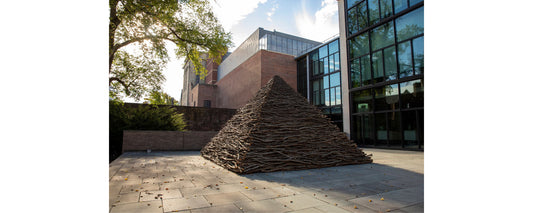Last Saturday, the Connecticut Agricultural Experiment Station at 123 Huntington Avenue was abuzz. Over 100 enthusiasts swarmed its auditorium, searching for knowledge about their passion: Apis mellifera.
The honeybee.
The occasion was Bee School, the first of two already-filled-up sessions scheduled this month by the Connecticut Beekeepers Association, and it’s where budding keepers and seasoned apiarists go to get registered or stay up-to-date. Though it may sound like a casual, hipster-y pursuit these days, beekeeping is actually a hard-nosed agricultural endeavor, complete with financial risks and complicated biological puzzles (like reducing your dreaded Varroa mite count and maintaining proper “bee space”).
sponsored by
Accordingly, at Bee School, there was an overriding sense of appreciation and admiration for the insect. “When you look at a honeybee,” says Bill Hesbach, a certified master beekeeper, “what you’re looking at is the perfection of millions of years of evolution and the most amazing flying mechanism that we’ll have the pleasure of seeing in our lifetimes.” He compares the humble honeybee to high-tech aircraft, and finds the bee superior.
The hobbyist beekeeper has to know what to do and in what order to do it. Hive structures must be decided on; the CBA, founded in 1891, suggests either the Langstroth setup, which looks like a vertical stack of boxes, or the Top-Bar, which resembles a coffin on stilts. Bees must be ordered, placed into their new hive and given an acceptable queen—who, like the rest of the bees, comes in her own protected traveling box. Although she gorges on royal jelly and carries great distinction in a dense hive, the matriarch bee is not actually a power player. “The queen’s an indentured servant,” Hesbach says. “She’s not Queen Elizabeth.” The minute her hormones falter, she will be replaced by her hive—killed after she lays the eggs for new queens.
Bees are not sentimental, but most beekeepers are. Steve Dinsmore, a 20-year beekeeping veteran and the president of the CBA, says that Connecticut is a state of “backyard beekeepers” as opposed to commercial apiarists. Beyond the obvious boon of having fresh honey always available, Dinsmore says, “a lot of people are getting into it because they look at the news articles about honeybee mortality, and they want to do something. They feel it’s good to help preserve the bees.”
The primary threat is the Varroa mite, a “worldwide problem” that attacks bees in both the brood and adult stage. Largely defenseless against the parasite, “bees have a hard time living without human intervention,” says Dinsmore. “We’re keeping the bee population alive.”
And having fun at the same time. Beekeeper Gilman Mucaj jokes that if you ask 10 beekeepers a question, you’ll get 11 answers. Hesbach warns that you should never stand directly in front of your hive, because the traffic patterns “look like LaGuardia at night.” Al Avitabile, the program chair, has perfected the trick of holding a drone bee in his mouth. “They don’t have stingers,” he explains.
“But they can defecate,” Hesbach chimes in.
According to Dinsmore, bees are far more complicated than their stature suggests. “Bees will show you things that will just make you step back and say, ‘Wow,’ They’re little tiny insects that make life and death decisions for their colonies. Is it instinctual, or is it a hive mind? They really are amazing creatures.”
One of the pleasures and challenges of beekeeping is this element of surprise. “Bees will do what bees will do,” says CBA member George Rowe. “After you buy all the books, subscribe to all the magazines, you’ll find they don’t read them.”
Connecticut Beekeepers Association
info@ctbees.org
www.ctbees.org
Written and photographed by Sorrel Westbrook.








